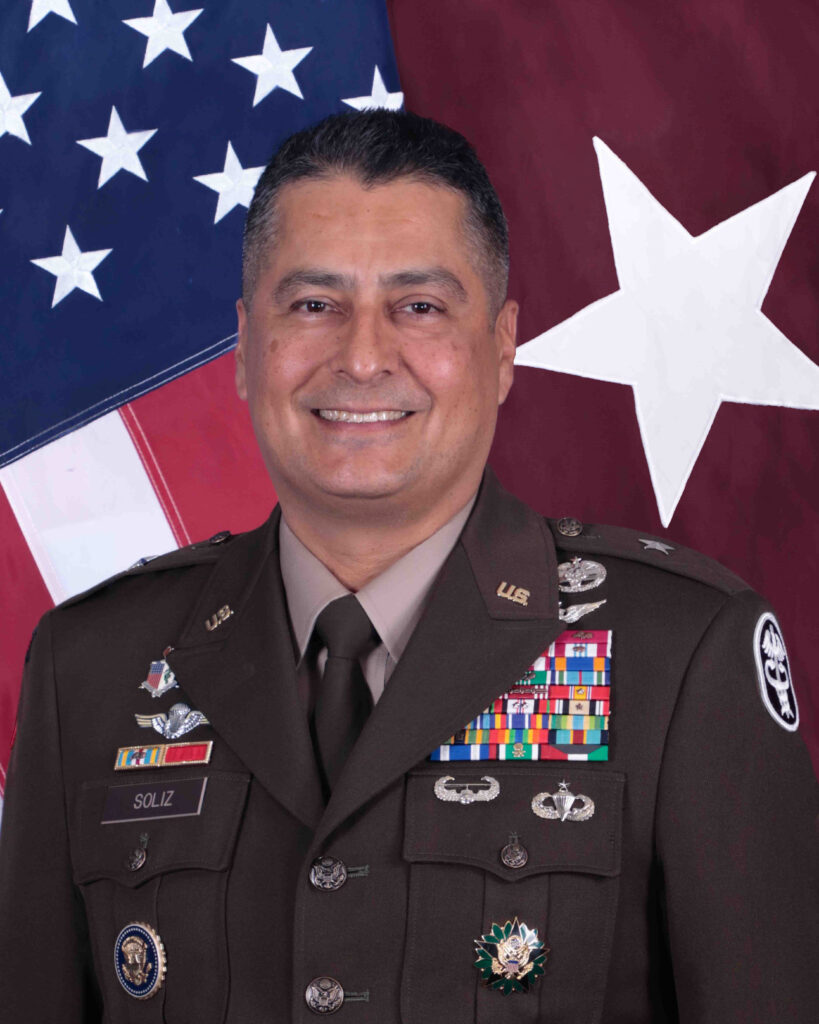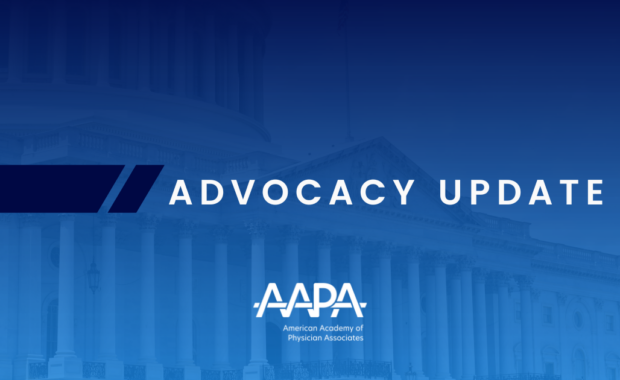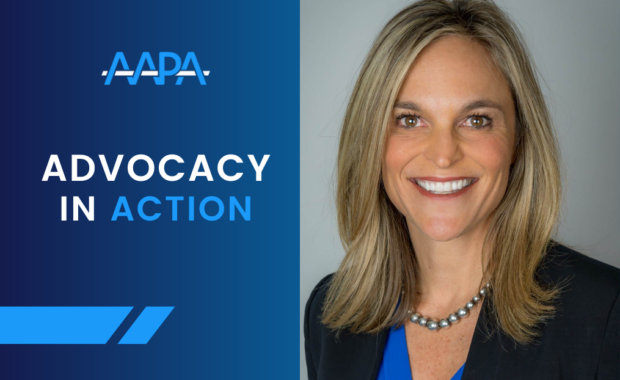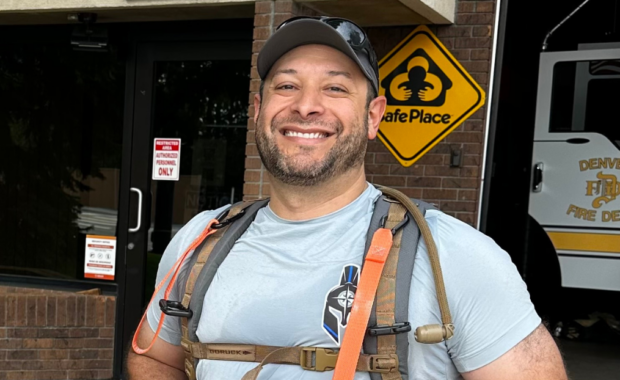2025 Military Service Award Recipient is a Tireless Champion for the PA Profession
BG Bill Soliz Has Made it His Mission to Advocate for PAs
May 8, 2025
By Dorsey Griffith

Brigadier General Bill A. Soliz, PA-C, DMSC is the 2025 recipient of the AAPA Military Service Award. A leader, mentor, and tireless advocate for the PA profession within the military and beyond, Soliz is noted for his indelible impact on military healthcare and setting new benchmarks for professional excellence and medical readiness.
The Military Service Award recognizes a veteran or active duty PA who demonstrates exemplary healthcare service and exemplifies the PA profession’s philosophy of providing accessible, quality healthcare to current members of the military, veterans, or a medically underserved community.
Soliz has had an illustrious 37-year military career. In addition to numerous overseas deployments, he has held several high-level positions, including PA to the President of the United States, PA Consultant to the Surgeon General, Commanding General for Medical Readiness Command Pacific, and Director of the Defense Health Network Indo-Pacific, among others.
“His ability to inspire and lead has been instrumental in ensuring the operational readiness of military medical personnel,” wrote Col. Sharon Rosser, SP, PA-C, DSc, MSS, MPAS, a Commander of the U.S. Army Research Institute of Environmental Medicine, in her letter of support for Soliz. “He has spearheaded efforts to integrate artificial intelligence, telemedicine, and other emerging technologies into military healthcare, ensuring that military medical professionals are equipped with the best tools available.”
Soliz will be serving as the Director of the J3/5/7 at the Defense Health Agency Headquarters (DHA), where his work will include coordinating across various components of the Military Health System. As a combat support agency, the DHA plays a critical role in supporting combatant commands through essential services like the Armed Services Blood Program and the Joint Trauma System.
“I will be responsible for overseeing global healthcare operations, long-term strategic planning, training and education,” Soliz says. “I work to ensure that service members, their families, and all beneficiaries receive the care they deserve.”
Col. James J. Jones, director of the White House Medical Unit, said that Soliz has pioneered policies that have expanded the PA role in military healthcare, ensuring that the profession remains at the forefront of readiness. In his letter of recommendation for Soliz, Jones praised Soliz’s “ability to operate under immense pressure while maintaining exceptional clinical skills and leadership speaks to his dedication and professionalism.”
Soliz’s beginnings were humble. As a teenager growing up in California, he knew he’d have to support himself once he turned 18 because his family couldn’t afford to send him to college. That reality led him to enlist in the U.S. Army as a combat medic, where he advanced through the ranks and eventually, became a PA.
“As a young soldier, I was inspired by the depth of knowledge and professionalism demonstrated by the PAs I worked alongside,” he says. “They had a profound impact on me, and their ability to lead, diagnose, and manage patient care at such a high level was both impressive and motivating.”
Since becoming a PA in 1996, Soliz has made it his mission to advocate for the profession. Beyond his military work, Soliz has demonstrated his influence on a global stage. At the International PA Symposium in Mannheim, Germany, he advocated for integrating PAs into diverse healthcare systems, positioning military PAs as a model for other nations seeking to enhance their medical workforces.
His commitment to service also extends beyond the military community. He has participated in numerous medical outreach missions supporting underserved populations worldwide, reinforcing the role of military medicine in global health engagement.
“What I find most rewarding is the ability to push boundaries as a military PA and contribute at a strategic level among senior leaders across various medical professions,” he says. “It’s especially meaningful to be in a position where I can advocate for the PA role, help shape policy, and influence how we are integrated into the broader military healthcare system.”
Thank you for reading AAPA’s News Central
You have 2 articles left this month. Create a free account to read more stories, or become a member for more access to exclusive benefits! Already have an account? Log in.



